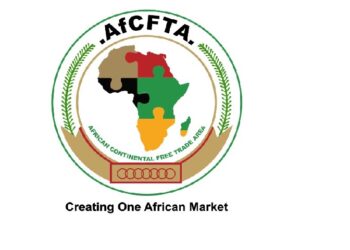Nigeria faces numerous economic challenges despite its vast potential. One of the critical issues it grapples with is the need to broaden its tax base. A robust and comprehensive tax net is essential for the country’s economic stability and development.
There are several approaches that can be adopted to broaden the country’s tax net. For example, embracing digitalization and technology is paramount in modernizing Nigeria’s tax collection system. The government should invest in state-of-the-art tax management systems, including digital platforms and databases. By digitizing tax records, tracking income, and ensuring transparency, tax evasion becomes more challenging, and the tax base naturally expands.
A significant portion of Nigeria’s population operates outside the formal banking system, making it difficult to capture their financial activities for taxation purposes. The government must intensify efforts to promote financial inclusion, encouraging people to open bank accounts and participate in the formal economy. This way, their financial transactions become visible, allowing for taxation.
The informal sector plays a substantial role in Nigeria’s economy, yet it often evades taxation. Implementing policies to integrate the informal sector into the formal economy will expand the tax net. Providing incentives, simplifying registration processes, and offering tax education can encourage informal businesses to contribute their fair share.
Introducing progressive tax policies can ensure that high-income earners contribute proportionally more to the tax revenue. Adjusting tax rates and introducing wealth or capital gains taxes can help increase the government’s income without burdening lower-income individuals disproportionately.
Apart from that, many Nigerians are not fully aware of their tax obligations or the benefits of paying taxes. The government should invest in taxpayer education and awareness campaigns to inform citizens about the importance of taxation, how taxes are utilized, and the consequences of tax evasion.
Strengthening tax enforcement is vital to close existing loopholes and ensure compliance. This includes auditing, investigations, and penalties for tax evasion. An effective enforcement system can deter tax evasion and enhance revenue collection.
Tax collection is not mainly the responsibility of the government. Collaborating with state and local governments to harmonize tax policies and collection efforts can improve overall tax administration. This synergy can also prevent double taxation and improve tax compliance.
Also, leveraging public-private partnerships can help optimize tax collection. Engaging private sector organizations in tax collection and administration can enhance efficiency and reduce the burden on government resources.
Nigeria should also focus on international tax treaties and collaborations to combat tax evasion and profit shifting by multinational corporations. Participating in initiatives like the Common Reporting Standard (CRS) can help identify offshore tax evasion and recover lost revenue.
To build public trust and encourage compliance, it’s essential that tax revenue is transparently allocated towards public services and infrastructure development. Citizens should see the direct benefits of their tax contributions.
Expanding Nigeria’s tax net is a multifaceted challenge that requires a combination of technological innovation, policy reform, awareness campaigns, and efficient enforcement. A robust tax system not only enhances the government’s revenue but also fosters economic stability and development. By implementing these strategies and fostering a culture of tax compliance, Nigeria can work toward a more equitable and prosperous future for all its citizens. Expanding the tax net is not just about increasing revenue; it’s about building a stronger, more resilient economy that benefits everyone.















